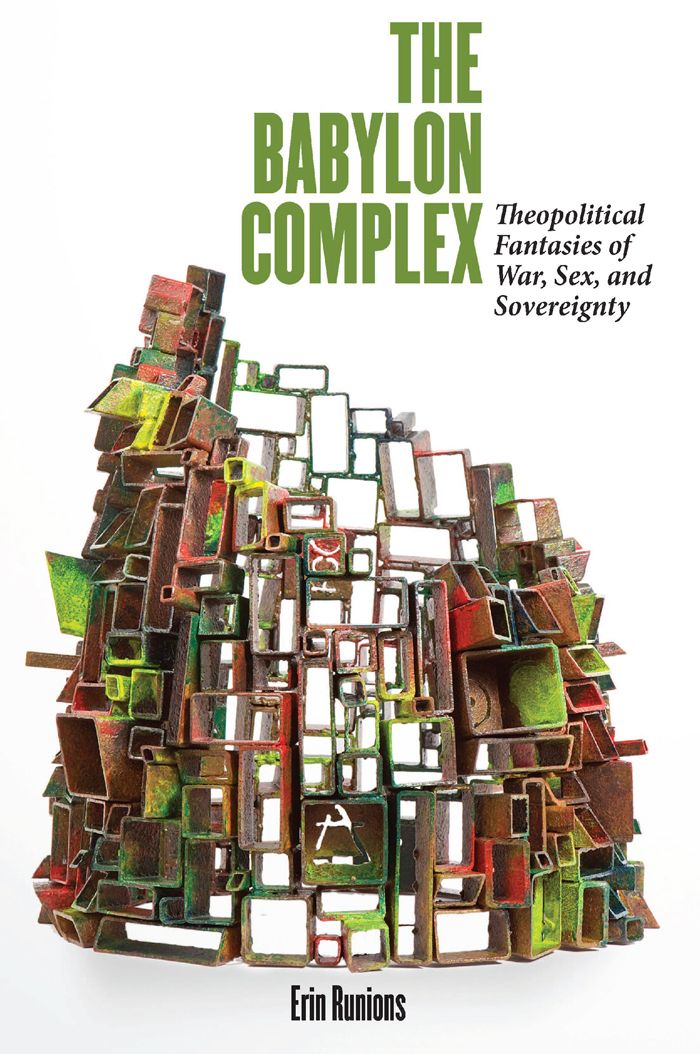The Babylon Complex
Theopolitical Fantasies of War, Sex, and Sovereignty

This book can be opened with

Babylon is a surprisingly multivalent symbol in U.S. culture and politics. Political citations of Babylon range widely, from torture at Abu Ghraib to depictions of Hollywood glamour and decadence. In political discourse, Babylon appears in conservative ruminations on democratic law, liberal appeals to unity, Tea Party warnings about equality, and religious advocacy for family values. A composite biblical figure, Babylon is used to celebrate diversity and also to condemn it, to sell sexuality and to regulate it, to galvanize war and to worry about imperialism.
Erin Runions explores the significance of these shifts and contradictions, arguing that together they reveal a theopolitics that tries to balance the drive for U.S. dominance with the countervailing ideals and subjectivities of economic globalization. Examining the confluence of cultural formations, biblical interpretations, and (bio)political philosophies, The Babylon Complex shows how theopolitical arguments for war, sexual regulation, and political control both assuage and contribute to anxieties about waning national sovereignty. Theoretically sophisticated and engaging, this remarkable book complicates our understanding of how the Bible affects U.S political ideals and subjectivities.
“Runions’ scholarship is phenomenal. It’s stunning that she can sustain her rigor over this variety of cultural and political contexts. That she does is a testament to her breadth as a scholar, and her critical acumen.”
Erin Runions reveals Babylon to be an ambivalent but perversely indispensable figure for theopolitical discourses girding contemporary biopolitics. Modeling a queerly sublime ethics of reading, The Babylon Complex sets an agenda for a next generation of biblical scholars while demonstrating what cultural studies gains from engagement with biblical studies.
The Babylon Complex is unlike anything else in the fields it engages and crosses; its scholarship is unique, top-tier, and challenging, offering much savvier reflections upon biblical heritages and uses than what one often finds in the current theoretical 'turn to religion.' In short, it is both relevant and interdisciplinary, two terms too often used, but seldom as aptly as they are for this truly excellent book.
“Theoretically sophisticated and engaging, this remarkable book complicates our understanding of how the Bible affects U.S political ideals and subjectivities.”——Reading Religion
With fearless insight and incisive prose, Erin Runions offers a breathtaking tour de force of astute biblical-political-philosophical analysis that persistently reframes the intertwining of biblical interpretation and biopolitics through the figure of Babel/Babylon. As she shows, the pervasive theopolitics of American discourse, right and left, is informed by an eschatological fantasy sanctioned by the twin edifices of bible and law. This engrossing account of biblically inflected defenses of US sovereignty places biblical interpretation at the center of critical theory and critical theory at the center of biblical interpretation. A must read for anyone interested in the current state of theodemocratic exceptionalism, in the unpredictable and shifting meanings of biblical texts, and in the possibility of listening, finally, to an other.

